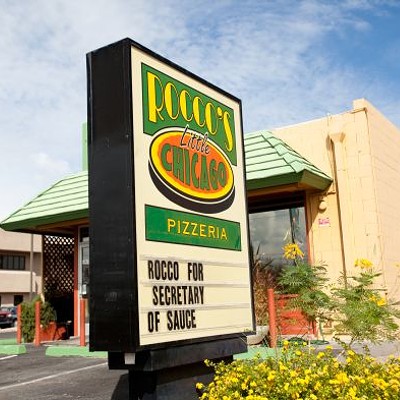Organized in 1988 and officially recognized by the City of Tucson the following year, the Santo Domingo, Nicaragua Sister Cities program has always been distinctive from its associates.
The Nicaraguan program began by helping to send a busload of supplies to the country after a devastating hurricane. It then focused on improving the potable water supply in Santo Domingo, a community of 10,000 located 80 miles east of the capital, Managua. The 50-year-old system was in disrepair, so the Tucson group wanted to assist in rebuilding it.
Using a $54,000 private grant combined with funds raised at bake sales and potlucks, in 1994 the program acquired pipes and pumps. The next year volunteers from Tucson worked with representatives from Santo Domingo to successfully implement part of the total project. But more than $20,000 still remained to be spent.
"Two-thirds of the households in Santo Domingo have water now," according to program member Mark Mayer, "about 80 of them because of this project. We were preserving the rest of the money to finish it."
But local efforts slowed because of personnel changes and constraints the Nicaraguan government put on non-governmental organizations such as Tucson's Sister Cities program. Despite that, in 1997 the group did help with construction of a pre-school in Santo Domingo and two years later donated more humanitarian aid after another hurricane hit the country.
Long before that, however, members of the organization had stopped dealing with SCAT because of a series of disputes, and in 1994 it was placed on inactive status by the City of Tucson. With a downturn in its activity, the program's checking account at the Bank of America was limited to paying its annual post office box bill.
Members of the group, however, had every intention of returning to the water system project. Earlier this year, though, they found they no longer had any funds in their checking account to do so.
In February, SCAT treasurer Jerry Gary managed to transfer all of the money from the Santo Domingo program to his group without the three signers on the account being notified. While Gary declined to be interviewed for this article, according to an e-mail he sent Mayer in October, this was done because "it was considered prudent to move them for safekeeping."
When 90-year-old program member and account signer Mary MacEwan learned of the fund transfer, she says, "I was shocked by the disappearance of the money. I can't understand how it was taken out of the account without talking to us."
After discovering the fund transfer, the Santo Domingo program tried to retrieve its money. They invited Gray to attend one of their meetings, and he asked them to come to a SCAT gathering. Neither invitation was accepted, and a standoff ensued.
In his e-mails, Gary expresses concern about the Santo Domingo group's level of activity and "the fact that you still consider yourself a sister and a member of SCAT." Mayer calls that a diversionary tactic and indicates the program was never terminated by the city. He also says SCAT's bylaws, which clearly spell out how the funds from terminated programs are to be dealt with, weren't followed.
Members of the Santo Domingo program believe Gary and SCAT chair Alberto Moore had plans to spend the almost $22,000 taken from the account on another project. They point to the minutes of an August SCAT meeting which state "$22,000 available for distribution on unrestricted basis. Allocation needs to be discussed and the rules for distribution established."
When contacted, Moore would only say, "This is not for public information right now." But in an e-mail last month, Gray wrote, "There is no intention of disbursing or allocating these funds at this time."
That statement is certainly true for now because the Bank of America froze the funds in August. They have indicated that if the disagreement isn't settled in "a reasonable time," they will seek court action to determine ownership and charge the account for their expenses.
But why didn't Bank of America prevent this mess by notifying the signers on the account before transferring the funds? Local and national representatives of the company wouldn't answer that question.
In trying to get its money back, the Santo Domingo program has demanded its return in writing, threatened legal action and turned to the City Council for help. As an umbrella organization for the numerous local sister city programs, SCAT receives some city money, and thus is answerable to the council.
Westside representative José Ibarra, who asked recently to have the item placed on the council's agenda, doesn't hide his feelings about the issue. "I want the city attorney and police chief to look at this inappropriate action by Jerry Gary and Alberto Moore," he says. "I think we can get the money returned, but I'm more worried about their ability to switch the money."
He added, "I support the Sister Cities program, but it constantly has idiots compromising it with free trips [for its members or local politicians] around the world or to Mexico. They've given the program a bad name. This stunt is another example of that. Let's clean the program up."












